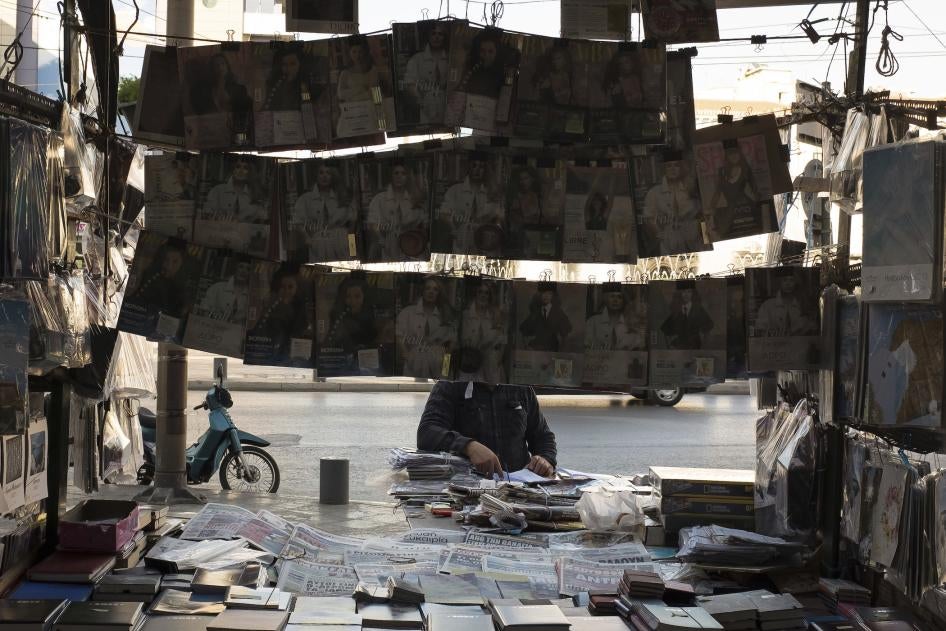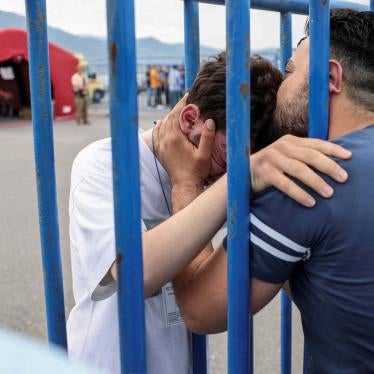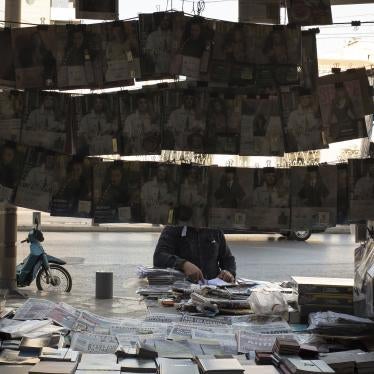The first court hearing in a defamation lawsuit against two media outlets and three journalists who played a pivotal role in exposing Greece's major surveillance scandal is set to begin on January 25.
In a series of articles in 2022, journalists documented the use of spyware to hack the devices of political figures, prominent businesspeople, and journalists, allegedly by Greek intelligence services and on direct orders from the prime minister's office. The case highlights the country's deteriorating media freedom.
In August 2022, Grigoris Dimitriadis, nephew of Greek Prime Minister Kyriakos Mitsotakis, initiated the lawsuit against EFSYN newspaper, online investigative platform Reporters United and its journalists Nikolas Leontopoulos and Thodoris Chondrogiannos, and freelance journalist Thanasis Koukakis. Dimitriadis is seeking €550,000 and the removal of an article implicating him in the spyware scandal.
The reporting of EFSYN, Reporters United, and Koukakis was instrumental in uncovering the spyware scandal. In the fallout from the scandal, Dimitriadis resigned from his position as general secretary in the prime minister's office and his role overseeing the National Intelligence Service (EYP).
Numerous international freedom of expression and media freedom organizations have condemned the Dimitriadis lawsuit as a strategic lawsuit against public participation (SLAPP) aimed at suppressing critical reporting. In October 2022, Dimitriadis was awarded the European ‘SLAPP Politician of the Year Award’ 2022 by the CASE Coalition.
Dimitriadis filed a second lawsuit in November 2023, again targeting EFSYN, three executives from the newspaper, and journalists Nikolas Leontopoulos, Thodoris Chondrogiannos, and Christoforos Kasdaglis from Reporters United. This second lawsuit seeks exorbitant damages of €3.3 million and demands the removal of further articles that reported on his alleged involvement in the surveillance scandal. Dimitriadis has also filed a separate lawsuit against Alter Ego Media group over similar reporting.
Media freedom groups have repeatedly called on Dimitriadis to drop the lawsuits.
The Greek government has a responsibility to address the growing threat of SLAPPs by enacting national legislation that provides effective safeguards for journalists and protects them from such legal intimidation. Similar legislation was agreed on at the EU level in November 2023.
Media freedom is an essential pillar of a healthy democracy. Journalists serve as watchdogs, holding power to account. They must be able to fulfill their role without fear of reprisal or intimidation. However, in 2023 Reporters Without Borders ranked Greece 107th in its press freedom index, the worst in the EU for the second year in a row. The upcoming hearing will be a crucial test of Greece's commitment to media freedom.










